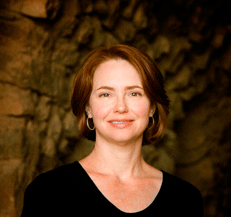
Resisting a “Safer” Silence
When Michael Brown was shot and killed in Ferguson, Missouri, I was reading the sermons of Martin Luther King, Jr.[1]
“The tension in this city is not between white people and Negro people. The tension is at bottom between justice and injustice, between the forces of light and the forces of darkness.”
“… noncooperation and boycotts are not ends themselves; they are merely means to awaken a sense of moral shame in the opponent. The end is redemption and reconciliation.”
“Noncooperation with evil is as much a moral obligation as the cooperation with good.”
“Now if moderation means moving on with wise restraint and calm reasonableness, then moderation is a great virtue that all men of good will must seek to achieve in this tense period of transition. But if moderation means slowing up in the move for justice and capitulating to the whims and caprices of the guardians of the deadening status quo, then moderation is a tragic vice which all men of good will must condemn.”
The words of Martin Luther King, Jr. are as electrifying in 2014 as they were in the 1960s. Has so little changed?
I have been reading King’s sermons as part of a sabbatical study of prophetic voice. Sabbatical time has meant an uncomfortable distance from the still unfolding news from Ferguson. I was living abroad in an eastern-European cultural context where other news had traction. I was sadly distanced from the conversations about Michael Brown happening among colleagues and within my seminary community. At the same time, the sabbatical intensified my sense of connection and concern about Ferguson. In the quiet isolation of sabbatical time, the luxuries of distraction and abstraction give way to emotion, reflection, conviction. What is the shape of prophetic voice for an academic in light of Ferguson? What is the shape of this voice for me, a theologian and theological educator?
The death of Michael Brown has awakened me to the on-going need for a prophetic spirit of question, dissent, and challenge regarding race in the United States. Ministers, scholars, and professionals of Christian commitment are necessary contributors: “non-cooperation … is a moral obligation.”
 Reading the sermons of Martin Luther King, Jr. is a reminder that what emboldens prophetic voice, and what dampens and moderates it, is shaped by communities of racial difference and minority/majority privilege/exclusion. As I have written elsewhere, prophetic voice happens in a matrix of personal standpoints and social pressures.[2] I appreciate that King was forthright with friends about the complicated, sometimes supportive and sometimes combative, constituencies weighing in and upon his every word. And yet he spoke up.
Reading the sermons of Martin Luther King, Jr. is a reminder that what emboldens prophetic voice, and what dampens and moderates it, is shaped by communities of racial difference and minority/majority privilege/exclusion. As I have written elsewhere, prophetic voice happens in a matrix of personal standpoints and social pressures.[2] I appreciate that King was forthright with friends about the complicated, sometimes supportive and sometimes combative, constituencies weighing in and upon his every word. And yet he spoke up.
In light of the killing of Michael Brown, my sabbatical meditations considered the complicated, sometimes supportive and sometimes combative, constituencies weighing on theological educators. Educators who are white, like myself, have been socialized to prefer a safety in the status quo, the protection of moderation, over the risks of shalom justice. It is the reason that during the month of August Howard University School of Divinity posted a protest photo of faculty and staff with hands in the air: “don’t shoot!” and my own and many other seminary webpages broadcast a “safer” silence.
When race matters, what are the attributes of prophetic voice for the religious educator and compassionate Christian? For me, these attributes involve:
Listening. Listening when it is easier to avoid the news coverage, easier to steer clear of the trenchant blogging and commentary, easier to turn a blind eye to the confessional statements and reports of police brutality.
Speaking. Speaking publically for dignity and fair treatment in spite of the pressures everywhere to speak up only with trusted friends and behind closed doors. Embracing public prophetic voice as the vocation rather than death sentence of academic and pastoral leadership.
Enacting. Enacting classrooms of multiplicity, selecting readings of racial and interracial vision, practicing dialogue amidst social tension. Enacting public friendship across racial differences so that every offer of an open ear, every word of support, every choice to show up, gestures toward the beloved community that King envisioned.
The attributes of listening, speaking, and enacting are simply stated and gut wrenchingly difficult. For people of racial privilege, they are difficult even with a modicum of integrity. Yet they are the needed expressions of prophetic voice and Christian compassion. Day by day, these attributes are the carefully placed cobblestones that create pathways toward reconciling peace.
Even so, I remain painfully aware of the pull toward moderation expressed in this post. I am thankful for, and dependent upon, brothers and sisters across lines of difference whose spirits resound with stronger voices of prophetic compassion and critique. May they continue to shape and challenge my own.
[1] Martin Luther King, A Testament of Hope: the Essential Writings of Martin Luther King, Jr., ed. James Melvin Washington (San Francisco, CA: Harper & Row, 1986).
[2] Miriam Y. Perkins, "The Politics of Voice: Reflections on Prophetic Speech as Voices from the Margins," in Enemies and Friends of the State: Ancient Prophecy in Context, ed. Christopher Rollston (Winona Lake, IN: Eisenbrauns, [forthcoming]).